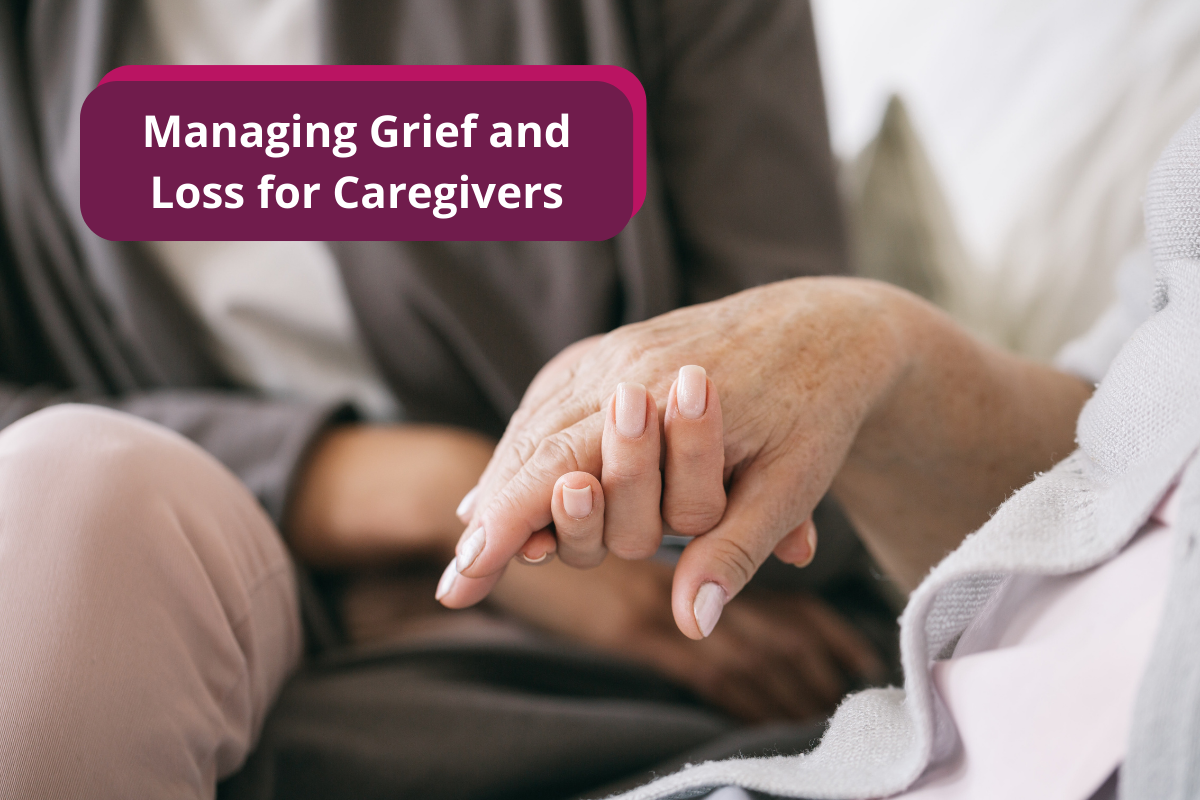The title of caregiver isn’t merely a professional role. If you care for an elderly loved one in some capacity or another, then you’re a caregiver. Were you the caregiver of an elderly parent, grandparent, or other relatives who recently passed on? You may experience a rollercoaster of emotions in the immediate aftermath. Learn how to manage caregiver grief in a healthy and accepting manner.
Stages of Caregiver Grief
First, let’s discuss some emotions caregivers commonly report. These states of mind ebb and flow during the first few weeks and months after the loss. It’s not unusual to experience feelings like:
- Sorrow
- Guilt
- Anger
- Regret
These emotions tend to cycle, and you’ll also feel positive moments in between, such as peace and a sense of “okay-ness.” There are daily actions you can take to keep the more negative emotions in check.
6 Ways to Cope with Caregiver Grief
Acceptance
Managing grief isn’t about making the negative feelings go away. Those feelings are absolutely normal and human nature after the loss of someone you’ve been providing care to. When you have those hard moments, just allow yourself to fully feel the emotions. You don’t have to like the feeling, but just allow it to be without judgment. As the saying goes, what we resist persists, so allow the grief to be there.
Do What You Love
You spent so much time caring for another person. It’s now time to do something for yourself. If there’s a hobby or other interest you’ve been holding off, now is the time to dive into it. This can be something entirely new or something you’ve once done and want to pick back up.
Exercise
Exercise more. By exercise, this can be as simple as taking a walk. The Black Dog Institute, a non-profit organization that studies mood disorders, released a study outlining the benefits of exercise as a form of grief management. According to the findings, as little as one hour of exercise once a week is enough to keep depression at bay.
Write in a Journal
Write about how you feel. You can share the content with others, or it can be for your eyes only. Regardless, nothing is off-limits. Write about whatever it is you need to get off your chest. Alternatively, you can write a letter to the departed loved one. Topics you can talk about include past positive memories and things you never got to tell the person.
Seek Out Support Groups
There are in-person and online support groups for people processing grief. It’s amazingly therapeutic to have a community of people who are going through similar losses of their own. You can find such groups on social media and form new friendships. Share stories about your loved one and hear aspiring stories from others.
Laugh More
There’s a saying that laughter is the best medicine, and there’s research to back this up. A study from the University of Berkeley found that those who recently lost a spouse experienced less grief when they could get themselves to laugh or at least crack a smile.
You won’t always be in a mood to laugh, but try to do things that tickle your funny bone by watching a funny movie or standup comedy routine. You can also remember a fond memory with your loved one that may help you form a genuine smile.
Arrange for Hospice Care in Lafayette, LA
Our caregivers grieve too when someone under their care for many months or even years passes on. Through experience, they learn how to deal with it in their own ways, and so can you. Contact Home Instead today to learn about the types of home care services we provide in Acadiana and the surrounding areas.



